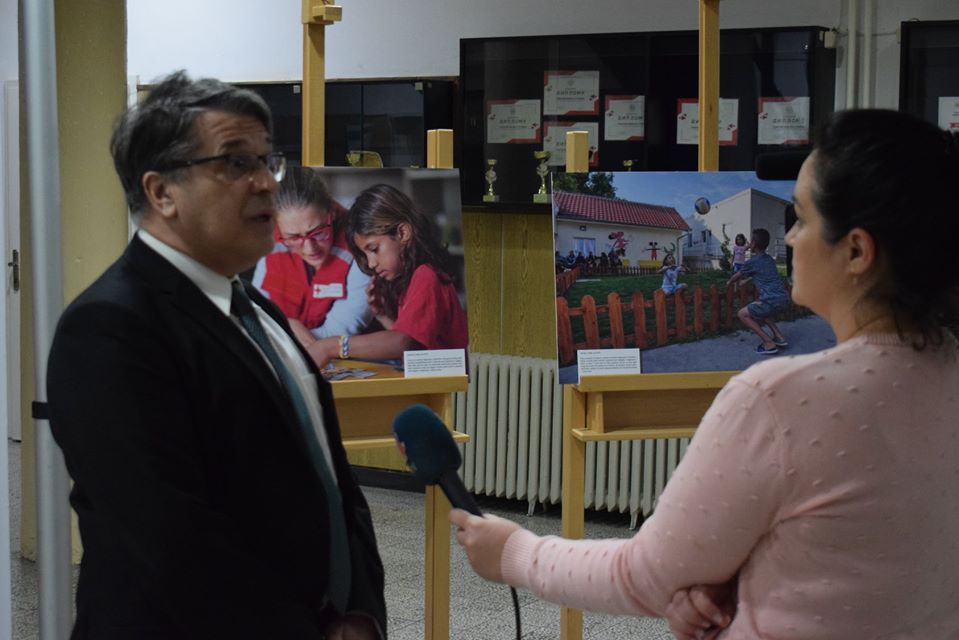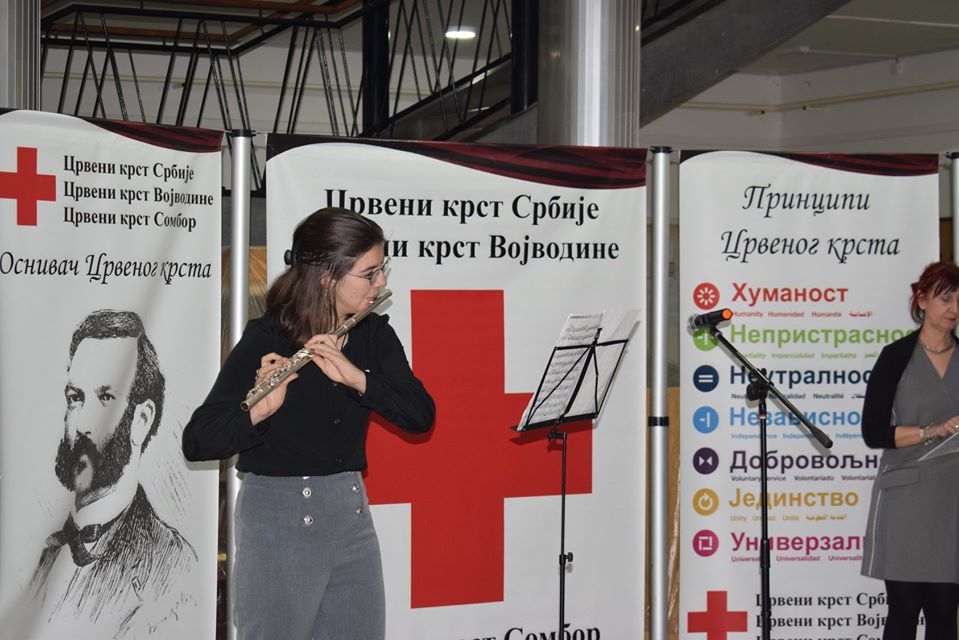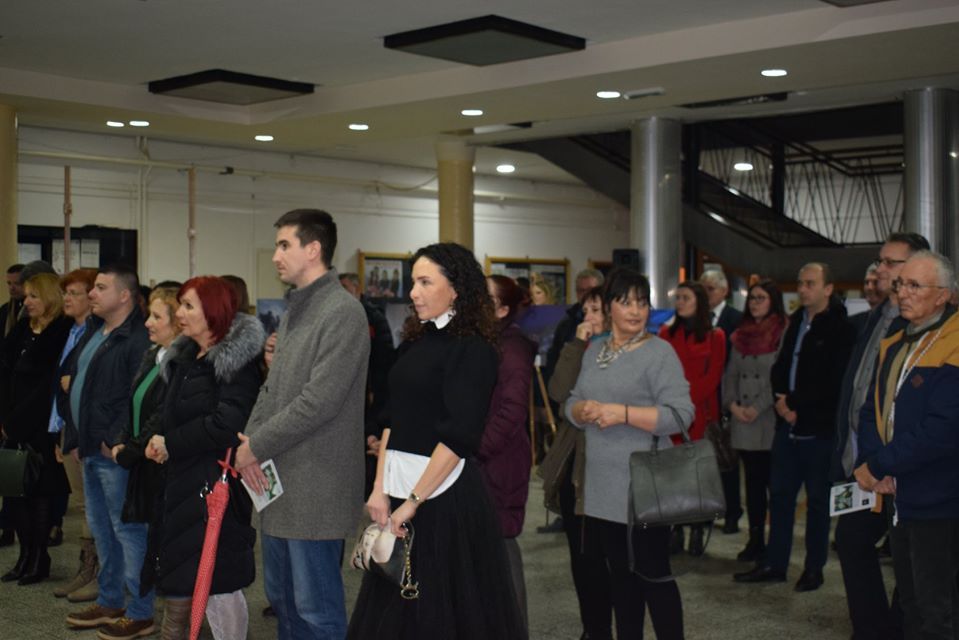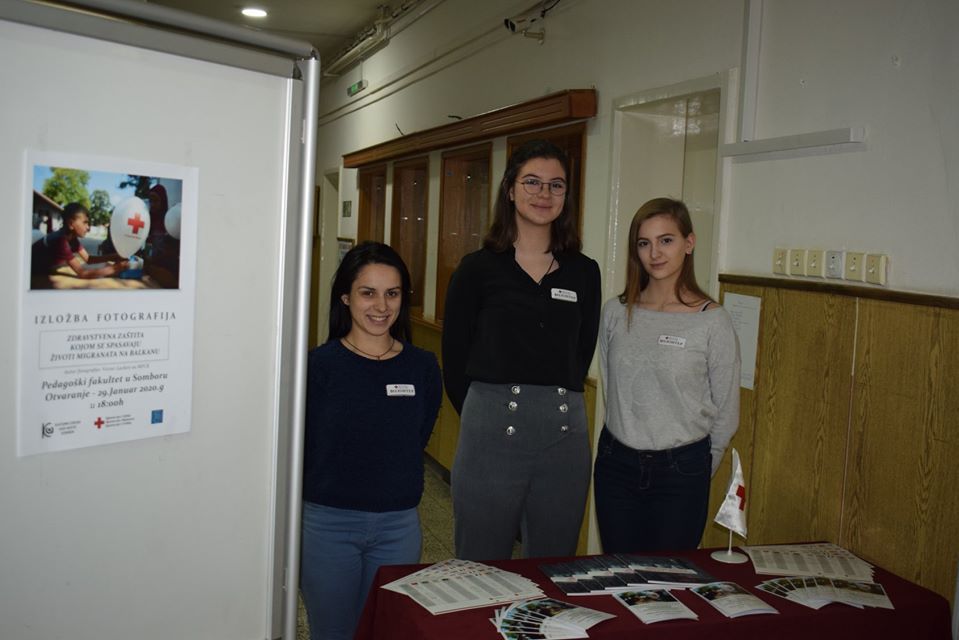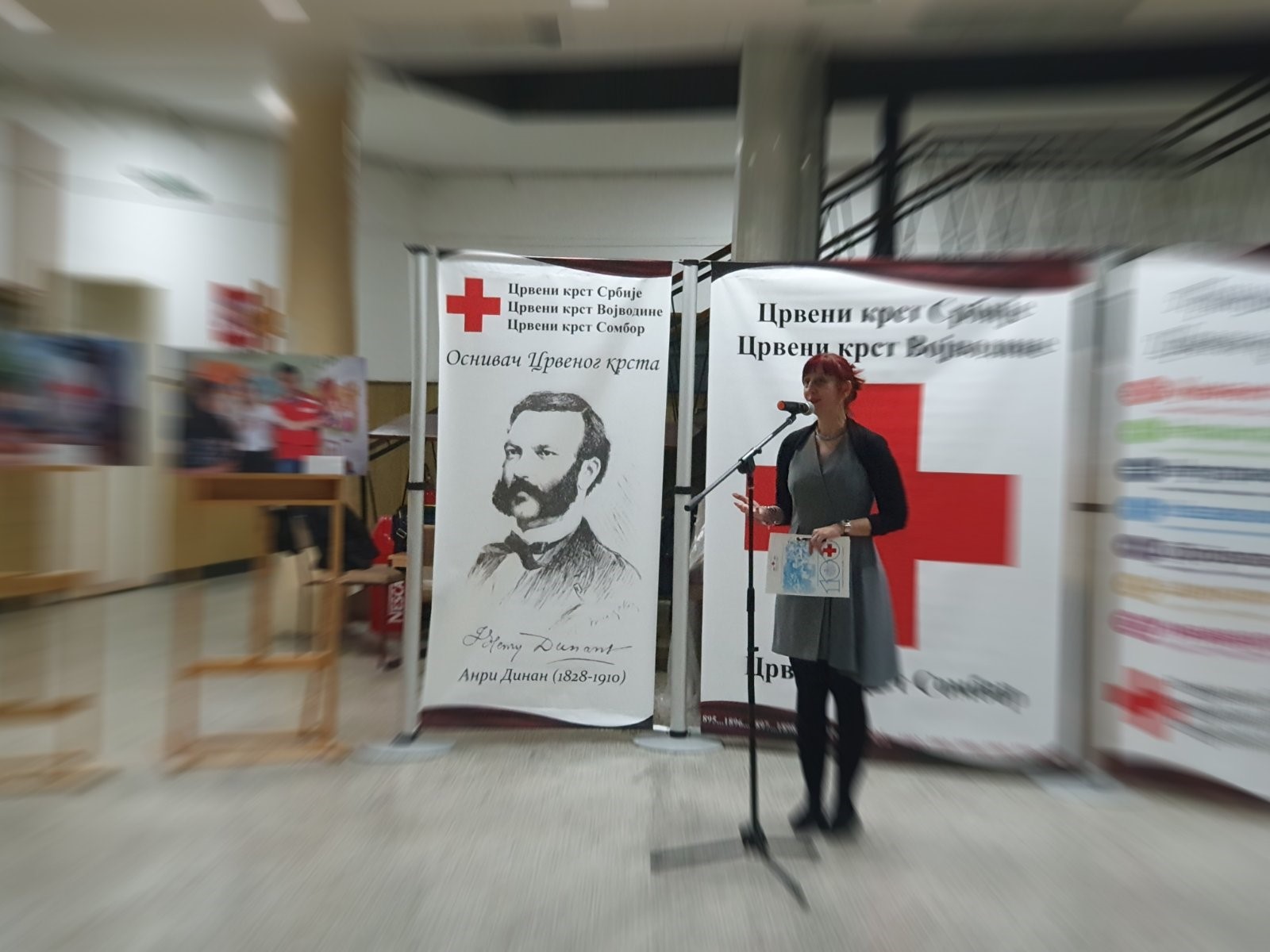- news
- opening of the photo exhibition „“life-saving healthcare for people on the move in the balkans”
Opening of the photo exhibition „“Life-saving healthcare for people on the move in the Balkans”
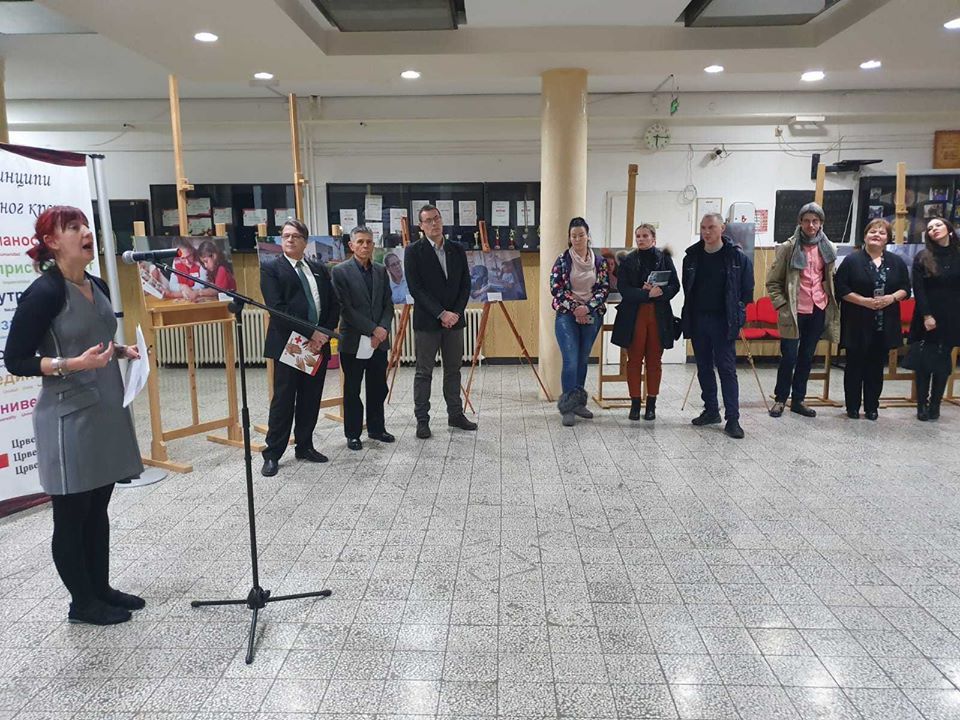
Photo-exhibition “Life-saving healthcare for people on the move in the Balkans” was opened on Wednesday 29 January 2020 in Sombor, at the premises of the Faculty of Pedagogy with participation of the representatives of Sombor municipal administration, institutions, students, citizens and Red Cross branches from the neighbouring communities. The exhibition was prepared by the Red Cross of Sombor in cooperation with the Cultural Centre “Laza Kostic” from Sombor and the Faculty of Pedagogy.
The photos were taken in migrant centres in Serbia (Subotica and Sombor), Bosnia and Herzegovina and North Macedonia in July and August 2019 thanks to the International Federation of Red Cross and Red Crescent Societies (IFRC) and the photographer Victor Lacken who documented the challenges faced by refugees and migrants as well as the work of the volunteers and staff of the Red Cross of Serbia and National Societies in the other two countries through which essential healthcare and psychosocial support are provided.
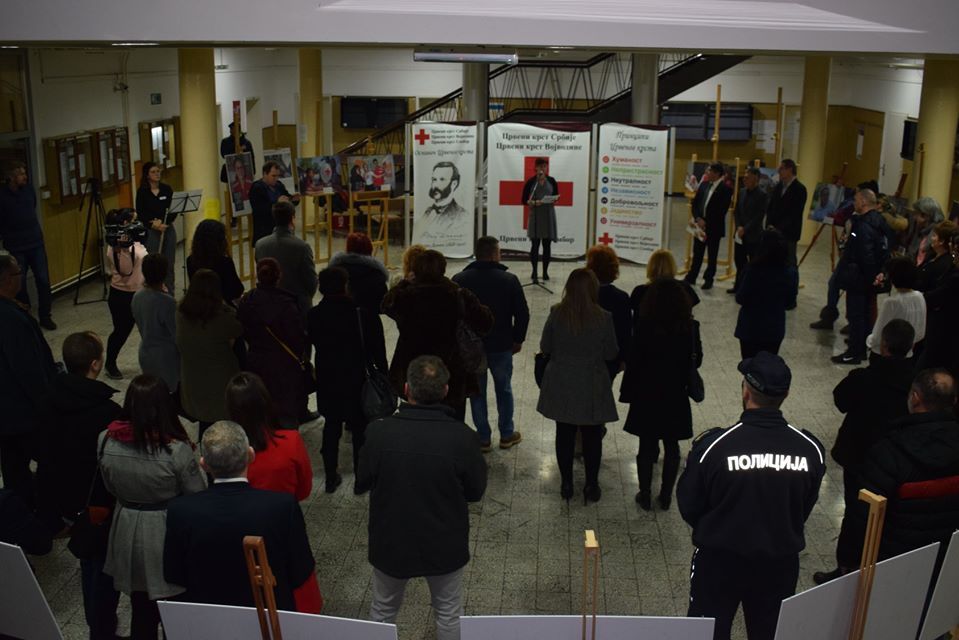
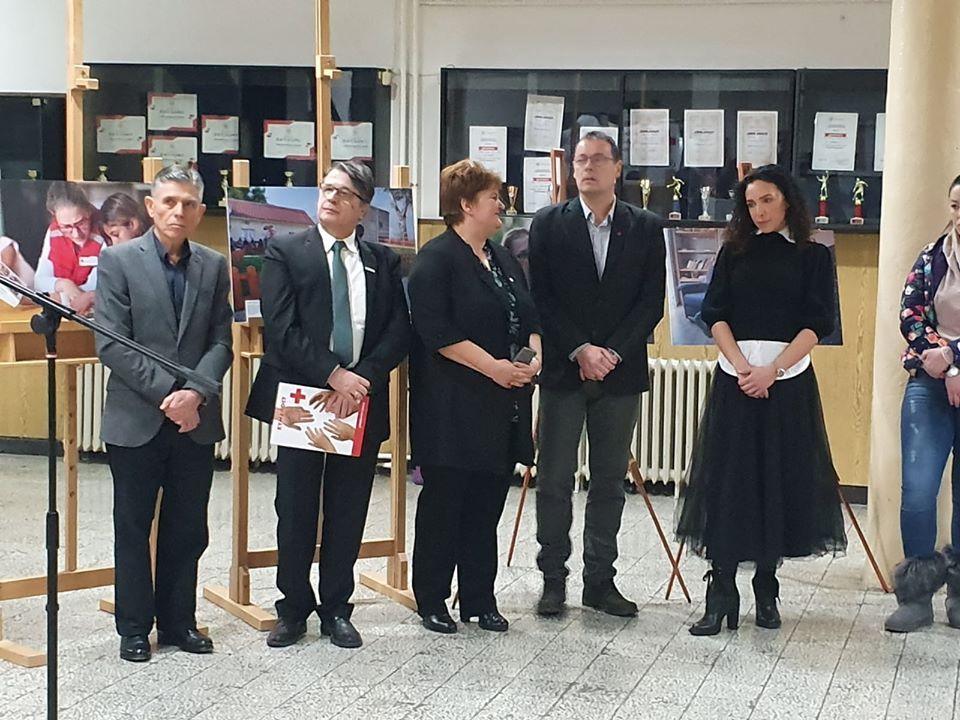
At the opening ceremony in Sombor, the attendees were addressed by prof. Dr Tihomir Petrovic, Chairman of the Council of the Faculty of Pedagogy, Assistant Professor Dr Milos Petrovic, President of the Red Cross Sombor and Vesna Pastrovic, head of the Cultural Centre Sombor. The opening of the exhibition was performed by Ljubomir Miladinovic, Secretary General of the Red Cross of Serbia and the programme of the ceremony was lead by Natasa Todorovic, Programme Manager in the Red Cross of Serbia.
The Red Cross of Serbia research study done in 2019 in cooperation with Psychosocial Innovation Network showed that 72.5% of migrants in the centres in Serbia are psychologically vulnerable so that support activities must include significant psychosocial support. The photographs at the exhibition taken in Serbia show psychosocial support activities with migrants at Serbian territory.
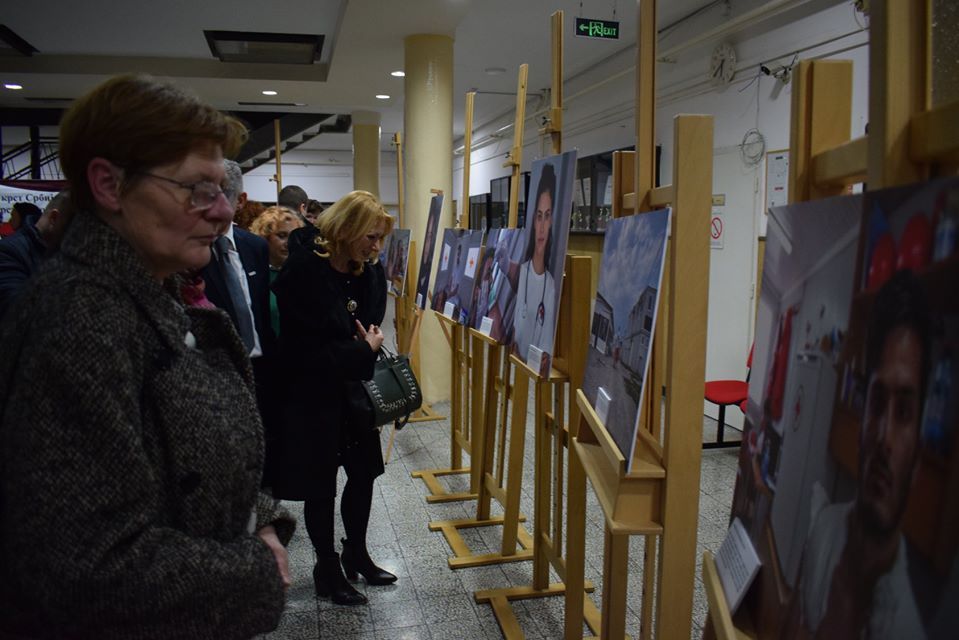
Natasa Todorovic ended her address at the opening ceremony with the following words: “Someone once said ‘people would be happy if they were allowed to choose their gender, their parents and their country of birth’. We should ask ourselves, since none of us were allowed that, could we have ended up on one of these photographs?”
